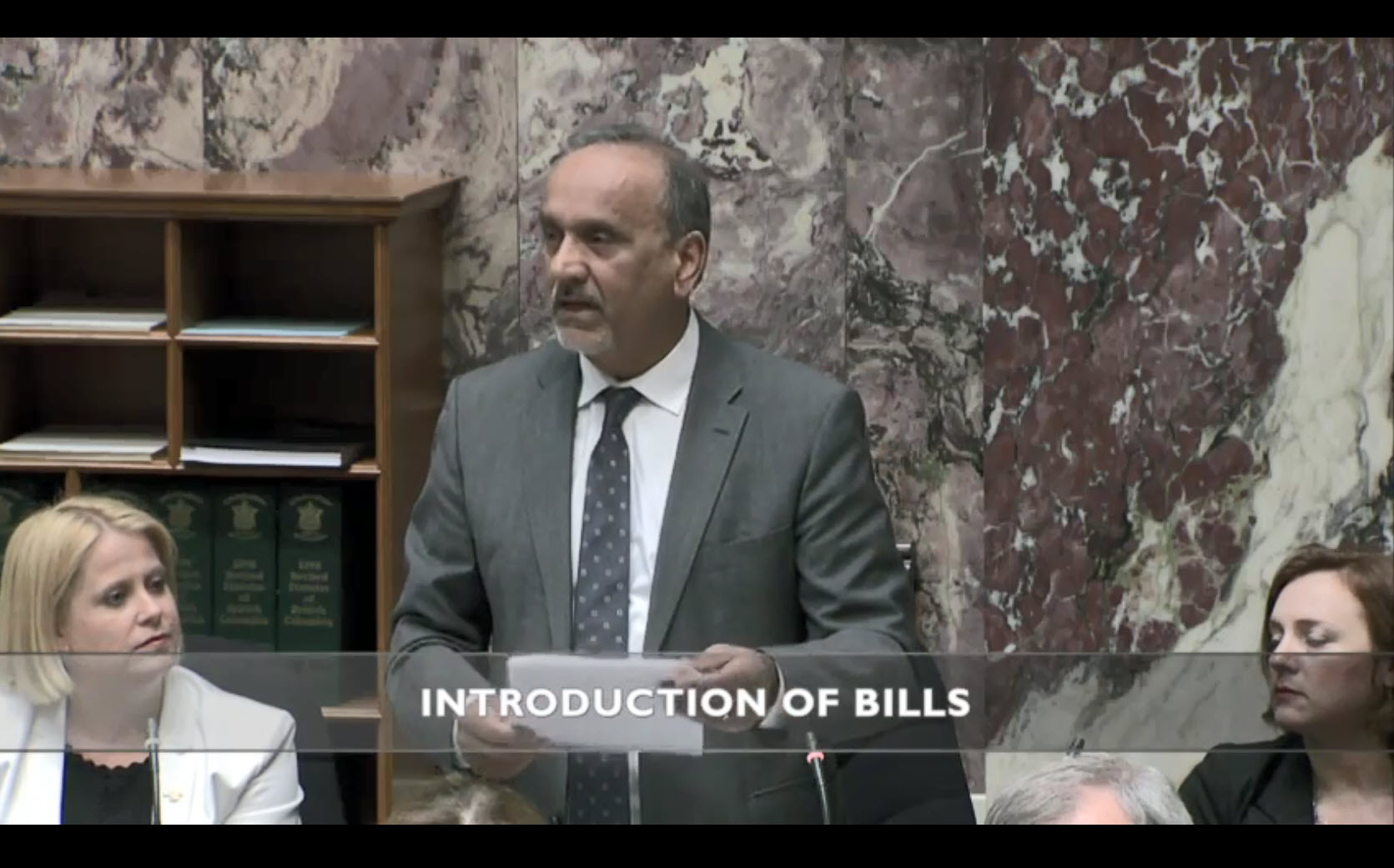Public bills are proposed legislation that applies to the entire province of British Columbia. For example, the law that determines the requirements for when someone can drive a car in B.C. started as a public bill.
Any MLA may propose a new law in the form of a bill. Most public bills are introduced by a Cabinet minister, including all tax-related bills. An example is Bill 2, the Taxation Statutes Amendment Act, 2001, introduced by the Minister of Finance.
A public bill introduced by an MLA who is not a Cabinet minister is known as a public bill in the hands of a Private Member (also known as a Private Members' bill). These types of bills must not require spending of public money and are not accompanied by a message from the Lieutenant Governor. An example of a public bill in the hands of a private member is Bill M210, the Tobacco and Vapour Products Control (Vulnerable Adolescents Protection from E-Cigarettes (VAPE)) Amendment Act, 2019.
Any public bill that requires spending public money or imposing a new tax must, by law, be accompanied by a recommendation or “message” from the Lieutenant Governor and be introduced by a Cabinet minister. However, the practice in B.C. is that all government bills are accompanied by a message from the Lieutenant Governor. This requirement is often called the "Royal Recommendation" and dates back hundreds of years, to a time when only the King or Queen could raise funds for public projects. Although this practice is by convention in the United Kingdom, it is a legal requirement set out in Canada's Constitution Act, 1871, and in B.C.'s Constitution Act, 1996.

